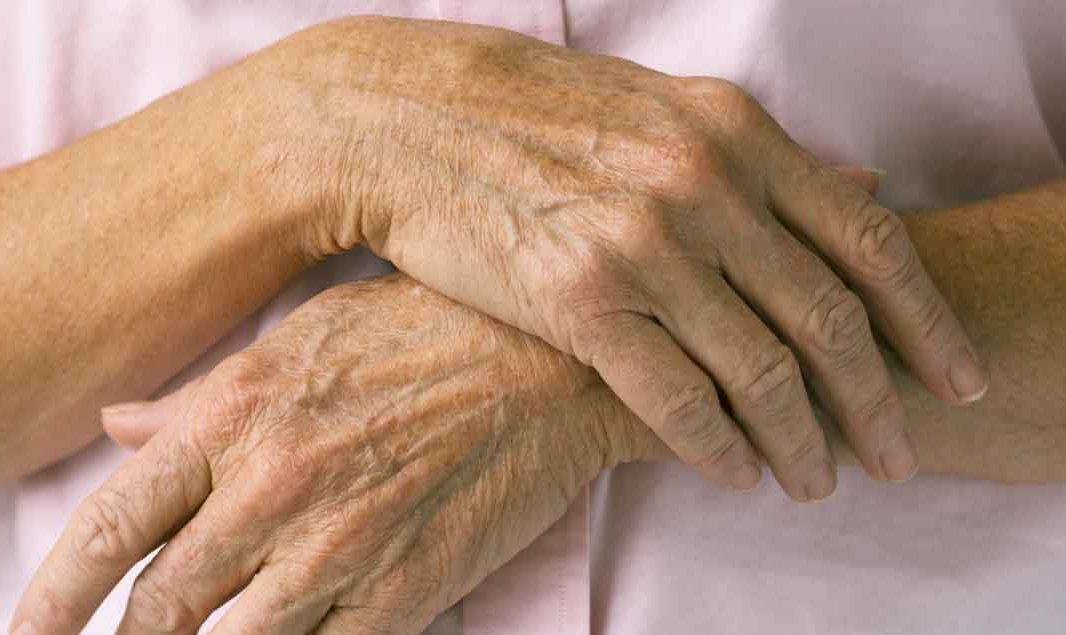Living with Essential Tremor

People often confuse essential tremor with Parkinson’s because of the shaking. It’s a benign condition that affects your self-esteem and can even cause depression.
People with essential tremor (ET) usually don’t talk about it. Most try their best to hide it. While it resembles Parkinson’s disease because of the shakiness that occurs in your hands, head, voice, legs, or trunk — it’s not.
Also known as familial tremor, benign tremor, or hereditary tremor, essential tremor is a neurological condition that affects 10 million Americans and many millions more worldwide. Those who have it are often asked why they’re so nervous.
YOU MIGHT ALSO LIKE: Our Brain and Nerve Care section
“People see my hands shaking, and they think I’m scared,” said Mary, who works in a public relations company in New York and doesn’t want to share her last name. “I often lead meetings and take people out to lunch for work. Sometimes, it’s worse than others. When I’m hosting a meeting, I have an assistant operate my PowerPoint presentation. At lunch, I order sandwiches and always hold a glass with two hands.”
Eating soup is out. Even holding utensils can be difficult. “It’s embarrassing,” she said. “I have one friend who also has it. Her head shakes, and that’s worse because people always think she’s so nervous. At least I can hide mine for now.”
Essential tremor usually occurs in some people in their mid-to-late 40s. Children and even infants can have ET. For young kids, the stigma is worse. “People want to know why I’m shaking all the time,” said Nathan, age 11. On some days he has trouble getting dressed. “Things like buttons and snaps are hard to open and close,” he said. “And my handwriting is impossible to read.”
Advice people with essential tremor get from friends, teachers, co-workers, and family makes matters worse. They’ve been told to cut back on caffeine, slow down, take deep breaths, relax, and stop worrying. “Nerves and anxiety can increase any tremor, but that’s not an underlying cause,” said Lisa Coohill, MD, neurologist at Summit Medical Group in Berkeley Heights, N.J.
Some people notice that the tremors stop if they drink alcohol. Coohill doesn’t advise taking up drinking. “It’s unfortunate that tremors can interfere with certain activities,” she says. “There’s no definitive known cause of ET and no direct treatment.”
People with slight tremors can purchase weighted glasses, pens, and utensils, as well as wrist weights. “The extra weight helps people not shake as much,” Coohill said.
That works for some people. When tremors interfere with work, eating, dressing, and other daily functions, however, Coohill recommends medication. Primidone (Mysoline) is a seizure medicine. A beta blocker called propranolol is another medication prescribed off label for people with ET.
If you have essential tremor, you can discuss medication with your doctor. Be aware that they have side effects and are not a cure. “They may help,” Coohill said.
She also recommends that you get a good night’s sleep and limit caffeine. “A lack of sleep or too much caffeine doesn’t cause ET,” she said. “They can exacerbate the tremors.”
When the medications don’t work, surgical options are available. Candidates for surgery are patients who’ve had no change in medication and have trouble performing daily activities, such as eating, drinking, writing, and dressing.
Coohill had a patient that did well with deep brain stimulation, in which electrodes are placed in your thalamus during surgery. A small wire is connected under your skin near your collarbone and acts like a pacemaker. The device sends mild electrical currents to stop the tremors.
Other more procedures include stereotactic thalamotomy, surgery that destroys part of the thalamus that causes tremors, and gamma knife radiosurgical thalamotomy, a type of surgery that uses radiation to destroy cells that cause ET. Both treatments have side effects.
Updated:
November 07, 2023
Reviewed By:
Christopher Nystuen, MD, MBA